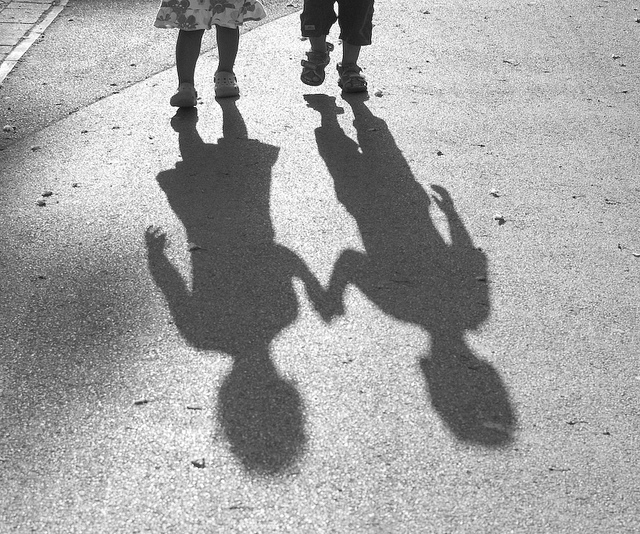Photo credit: Darran K Roper
Children and grief can be a hazardous combination.
Like adults, children cope with grief in their own unique way.
Here are our tips for how you, as a parent or carer, can guide your children through the grieving process.
Keep their age in mind
Children and grief often don’t mix. Your child’s ability to comprehend a life changing event will depend on their age and maturity level. For example, young children are often unable to understand the permanency of death and will expect the person who has passed to walk through the door again one day – they have just gone away for now. Similarly, saying that a loved one “has gone to sleep” to explain death or that a parent “has gone on a long holiday” to explain separation will confuse young children who are likely to take these terms too literally. Be sensitive to age and maturity levels when you are speaking to your kids about your situation.
Don’t keep the truth from your children
The best way to approach telling your child about a life changing event is to be up front. If a family member has passed, explain death to them. If you and your partner are separating, explain that their parents have some adult problems and won’t be living together anymore.
While it is tempting to sugar-coat the truth in order to protect your kids, restricting information from them will likely cause confusion in the future. In the same way, make sure you answer any questions that your kids have honestly. This may mean answering the same question multiple times – kids often ask questions repeatedly about something that they are struggling to comprehend. Be patient and provide consistent answers – they will reach a level of understanding in their own time.
Set an example
Don’t be afraid to express your feelings in the presence of your children. If you need to cry, then cry. Since your children haven’t experienced grief before they are likely to model their own behaviour off of you. If you bottle up your emotions, your children will learn to as well. By being open about the way you are feeling you will make it easier for your kids to express their own feelings and understand how the grieving process works.
Maintain a routine
Kids who are experiencing grief may struggle to comprehend that grieving is not permanent, and will often think that the emotions they are experiencing while grieving will last forever. Maintaining a daily routine of school, chores, mealtimes, curfew and bedtime will reassure them that all is not lost and allow them to see a light at the end of the tunnel.
Make others aware
Contact important people in your children’s lives like school teachers, sporting coaches, tutors or parents of your children’s friends and let them know your altered circumstances. Doing so does not mean that you are asking for preferential treatment – it simply means that you are looking out for your child. Keeping others in the loop will also allow you to detect changes in your child’s behaviour at school or on the sporting field which may not have been brought to your attention otherwise.
For more information on children and grief…
The makers of Sesame Street have released a resource for parents and carers to help kids through times of trouble that has been adapted for Australian readers. Click here to download it. Early Childhood Australia also has multiple links relating to children and grief. Kids Help Line (1800 55 1800) offers free counselling support services to kids, teens and young adults.



